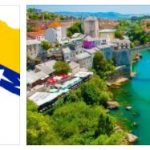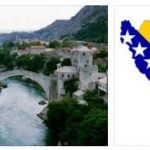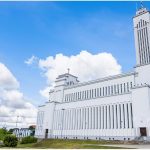Terrorism: The Basques and ETA Part I
In the summer of 2009, Basques again carried out terrorist acts in order to gain independence from Spain. The Spanish Constitution (from 1978) states that Spain is an indivisible nation consisting of several nationalities. As stated in paragraph 2: “The Constitution is based on the indissoluble unity of the Spanish nation, the common and indivisible fatherland of all Spaniards; it recognizes and guarantees the right to self-government of all nationalities and regions of which it is composed and the solidarity between them all. ”
- How uniform is Spain?
- What is the background to Basque nationalism?
- How consistent are those who live in the Basque Country?
- What do the authorities do?
This is the basis for the so-called Estado de autonomías, a state and a Spain of more or less autonomous regions ( autonomy ) with their own parliaments and governments. The degree of autonomy thus varies between the regions. The Basque Country, together with Catalonia, has the most autonomy. Few autonomous regions in the world have as much control over their own territory as these two. Among other things, they have their own police forces, called Ertzaintza and Mossos d’Esquadra, respectively.
2: Status of the Constitution
The Constitution of 1978 is the most inclusive and the one with the widest support that Spain has ever had. Nevertheless, support for the Basque Country is lower than in other regions. When the constitution was put to a referendum, the Basque leaders called on their supporters to abstain. The call was to some extent followed, and some Basques therefore claim that the constitution does not have full legitimacy in the Basque Country.
This relationship is often repeated in the political debate by the so-called soberanistas – those who believe that the Basques were a sovereign people before the Spanish state was formed. Among these again we find a small minority who are willing to use violence and terror to gain independence for what they perceive as the Basque Country (Euskal Herria). It is about the militant organization ETA and its various political supporters . The vast majority of Basques do not support ETA . So where does this conflict come from?
3: How far does the Basque Country extend?
Officially the Basque heartland the autonomous region Comunidad Autónoma Vasca (in Basque Euskadi ) in Spain. It consists of the three provinces
- Álava (Araba),
- Guipuzcoa (Gipuzkoa) and
- Vizcaya (Bizkaia).
For the most extreme of the Basque nationalists, however, the Basque Country consists in addition to the Spanish region of Navarre (Nafarroa) and the three French provinces of Labourd (Lapurdi), Basse Navarre (Nafarroa Beherea) and Soule (Zuberoa).
4: History, language and identity
According to A2ZGOV, the Basques are an ancient people who have long lived on both sides of the western Pyrenees and along the Atlantic coast in what is today Spain and France. Already here we find a fundamental distinction between the French and the Spanish Basque Country. Furthermore, history has deposited layers upon layers of further contradictions in the Basque region. Spain was born out of la reconquista – an 800 year long war. From this arose a loose alliance of Christian kingdoms which eventually drove the Moorish (Muslim) rulers away from the Iberian Peninsula in 1492.
Basque elites were heavily involved in policy-making, both during the war and later. In fact, Basques have been overrepresented in Spanish rule – first at the Castilian court and then under the Spanish throne.
On the other hand, the Basque Country was constantly remote from the war and difficult to access due to the topography. Spain was not a state in the modern sense, but a loose alliance of more or less independent (autonomous) regions with their own laws and rights. The Basques were largely left alone as long as they provided a buffer between France and Spain itself. The Spanish customs border went south of the Basque Country. The area was poor, underdeveloped and plagued by internal strife between different clans. Ordinary Basques thus had little contact with the rest of Spain and were long exempted from both taxation and military service.
5: Conflicting modernization
However, European wars such as the Spanish Succession War, the Napoleonic Wars and World War II led to both civil wars in Spain and civil wars internally in Catalonia and the Basque Country. Liberal ideas came to Spain as a result of the Napoleonic Wars and led to violent uprisings among the Conservatives. At the same time, opposition to liberal ideas was mixed with the defense of regional rights. Spain was haunted by several civil wars and military coups between 1814 and 1939.













